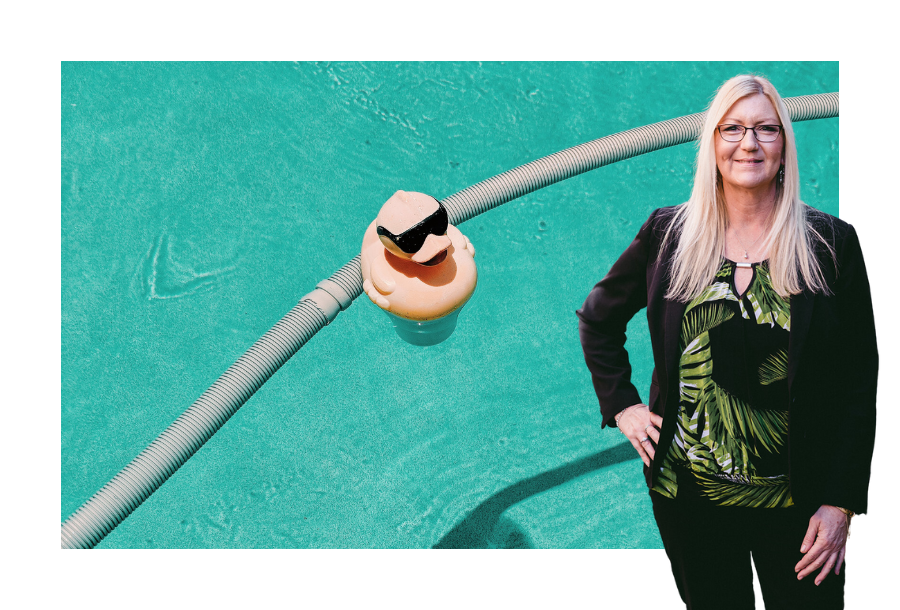Bookkeeping EOFY Checklist… From A Bookkeeper’s Point of View
Written by: Julie Pullen l Accounting Team
Can you believe it is that time again?! Yes, it is the end of another financial year. We know that the end of the financial year can be pretty daunting for some people, but there is no need to be afraid, especially if you’re prepared for it. How do we prepare for the end of the financial year we hear you ask? Being organised and ensuring that you have completed all the necessary steps is the key to ensuring you are end of the financial year ready. But what steps are we referring to? We’re going to take you through the following checklist and tips to ensure a smooth end of the financial year for you!
Record Keeping + Document Storage
It is important to note that you must keep your records for at least five years. This includes employee and superannuation records as well as any documents relating to your business’ income and expenses. It is also important to know that you must keep all records relating to starting, running, changing, selling and/or closing your business.
More and more businesses are moving to electronic storage. Did you know that if you use bookkeeping software such as Xero, Quickbooks or MYOB you can upload your documents for secure filing? You can also attach these documents to the reconciled transactions which therefore alleviates the need to keep hard paper copies of receipts. That’s a double win!
Bookkeeping and Reconciliations
It is essential to ensure that your bookkeeping and reconciliations are completed as soon as possible.
- Reconcile your bank accounts in your bookkeeping software against your bank statements to ensure that there are no discrepancies or errors. Reconciling regularly also helps you to identify potentially fraudulent transactions;
- Reconcile your accounts receivables and payable reports to ensure they match with your internal records and the balances shown in the balance sheet at 30 June;
- Reconcile your wages payable/payroll clearing account to your balance sheet at 30 June and ensure the balance is nil; and
- Reconcile your wages and superannuation expense accounts to your profit and loss statement at 30 June to ensure the figures match.
Finalise Payroll, STP (Single Touch Payroll) + Superannuation Obligations
- Ensure you process your final pay run for the financial year and file the STP (Single Touch Payroll);
- Run a payroll report for the entire financial year and cross-check it against the figures for each employee in your STP (Single Touch Payroll) finalisation, before submitting it;
- Finalise STP (Single Touch Payroll) and submit to the ATO prior to 14th July. This will ensure your employee’s income statements are “tax ready”; and
- Ensure June quarter superannuation obligations are processed by 28th July.
BAS + IAS Lodgements
You need to make sure that all of your BAS (Business Activity Statement) and IAS (Instalment Activity Statement) lodgements are correct and up to date and all liabilities either paid or on an ATO payment plan and debt in instalments are in place.
Prepare a TPAR (Taxable Payments Annual Report)
If you make payments to contractors and your business falls under one of the following sectors, you may need to complete a TPAR (Taxable Payments Annual Report):
- Building and Construction;
- Government Grant Providers;
- Courier Services;
- Cleaning Services;
- Road Freight;
- IT Services; and
- Security Services
Most accounting software programs have an inbuilt TPAR report. Once your report is downloaded, check supplier names, ABN’s and GST registrations against databases such as ABN Lookup to confirm they are charging you GST only if eligible and registered, then lodge your TPAR to the ATO.
Note that the TPARs are due to be lodged by 28th August.
Lodge Your Quarterly CoInvest Return
If you employ construction or maintenance workers in Victoria, you must make long service leave contributions to CoInvest. All members of the construction industry, including employers, workers, working subcontractors, working directors and apprentices are required to be registered with CoInvest.
Employers contribute a designated percentage of employee gross wages (this is currently 2.7%) to the Long Service Leave Fund each quarter along with the eligible days of service for each employee. CoInvest quarterly returns are due for lodgement and payment by the 14th day of the following month after the end of the quarter.
Inventory Stocktake
If your business carries stock, it is important you take a stocktake of your inventory by 30 June 2022 to correctly reflect your stock on hand at the end of the financial year.
Prepare for 2023/24 Financial Year
There are a few important things that you can prepare for the new financial year:
- Wages Increases – if you pay wages, check the Award relevant to your business for any national wage increases and update your employee pay rates accordingly.
- Superannuation Increases – as of 1 July the Superannuation Guarantee Contribution increases to 11%. Your payroll software provider should automatically increase the superannuation calculated on gross wages to 11%, however, please ensure you are checking it has been updated correctly before finalising your first pay run for the new financial year.
- Take note of lodgement due dates for 2024
- Superannuation Guarantee Contribution Due Dates – quarterly superannuation contributions are due to be lodged and paid by the 28th day of the month following the end of the quarter (i.e. June quarter superannuation is due 28th July). if you pay superannuation monthly, the due date is the 28th day of the following month.
- Monthly IAS’/BAS’ – monthly activity statements are due on the 21st day of the following month (ie. July IAS’/BAS/ are due 21 August).
- Quarterly BAS’ – due dates for Quarterly BAS’ are as follows;
- Quarter 1 (July, August, September) – 28th October
- Quarter 2 (October, November, December) – 28th February, please note there is a lodgement extension for this quarter due to the Christmas Holiday period
- Quarter 3 (January, February, March) – 28th April
- Quarter 4 (April, May, June) – 28th July
- Review PAYG Withholding Lodgement Cycle – if you pay wages, it is usually at the beginning of the financial year that your PAYG Withholding obligation cycle may change, depending on your annual amount withholding amount for the previous financial year. Keep an eye out for any correspondence from the ATO regarding your withholding cycle changing. Current withholding cycles are:
- For employers who withhold $25,000 or less annually (small withholder status) – you are required to notify and pay quarterly.
- For employers who withhold more than $25,000 and up to $1 million annually (medium withholder status) – you are required to notify and pay monthly; and
- For employers who withhold more than $1 million annually (large withholder status) – you are required to pay within six to eight days of a withholding event taking place.
Canny Group + Your EOFY Bookkeeping!
As the new financial year rolls in and you start to get organised, it can be a lot of information to digest and also feel like there are a lot of things to tick off your to-do list. Our team of bookkeepers and accountants are here to help you and give you a head start for the new financial year to ensure that it is smooth sailing! Even if you’re a little bit behind, we’re more than happy to help get you back on track.
Get in touch with our team today to let us help you take control!





